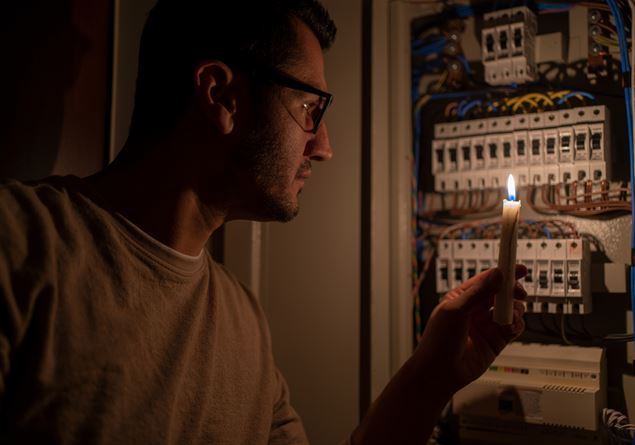It will happen more and more often that everything suddenly turns off as the other yesterday. The thermometers above 35 degrees, the asphalt that melts and the electrical network that gives off, with the cables dilated by the torrid heat, the blackout, sudden as a summer storm. And we will find ourselves reflecting, perhaps while we are stuck in the elevator – on the importance of the refrigerator, on the salvation of the air conditioner, on the TV off, on the unbearable life without Wi -Fi and perhaps – for those who have it – on the electric car that we can no longer recharge. It is not just a matter of inconvenience. It is a warning. Modernity is fragile as the stem of a poppy. We entered a new era, that of intermittent energy collapse.
It is the sign of an incomplete transition, the energy one, the daughter of international discord. A transition that we have hoped – rightly – but that we have not been able to govern. On a geopolitical level, while Europe designed a green clean energy system in China built coal plants one after the other and America defended its oil systems, fossil fuels and gas. Today we are paying the illusion that the solar panels on the roof to save the world were enough. But when the heat becomes extreme – and it will happen more and more often – a network is needed to hold the peak of demand for private and industrial refrigerators, fans, heat pumps in cooling mode and naturally air conditioners. And that network currently is not there.
The recent heat waves that Europe, the United States and other areas of the northern hemisphere are investing are a further signal. 2024 was the hottest year ever recorded, while May 2025 was the second hottest in history globally. The impact makes itself felt: on public health, on the environment, on the economy. Extreme temperatures will continue to grow in the next few days, compromising the productivity of work and social stability. Allianz Trade, in a recent analysis, calculates that heat stress has already made 2.2 percent of world working hours lose: about 80 million full -time places. And the account for Italy is even more salty: in 2025 we will lose 1.2 percent of the GDP, double compared to the European average. One day with over 32 degrees is like half a day of strike. In Italy, according to Terna, the electrical consumption of June increased by 6.5% compared to the previous year. Not for the industry, which rather slows down, but for the air conditioners. Energy has become a vicious circle: warmer and therefore more air conditioning, more consumption more risk of blackout.
According to the energy services manager, renewable energies cover 40% of the national electricity needs, but with strong discontinuity: photovoltaics only works during the day, wind turbines only if there is wind. Without efficient accumulations, Italy remains exhibited. Meanwhile, we have abandoned nuclear power, and, especially after the start of the war in Ukraine, we resort to gas and coal plants to hold the peaks.
The truth is that our electric civilization is based on a lie, indeed on an illusion: infinite energy and always available, such as tap water. But that’s not the case. If we do not face this node with adequate energy policies not only at national level but at European level and even worldwide with realism and investments, modernity risks extinguishing intermittently by condemning us to the era of fragility. As in the Black Out of Cuba in February. As in that of Spain and Portugal, in April. Like in Bergamo, the day before yesterday.










